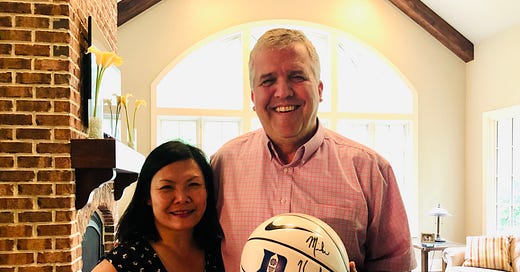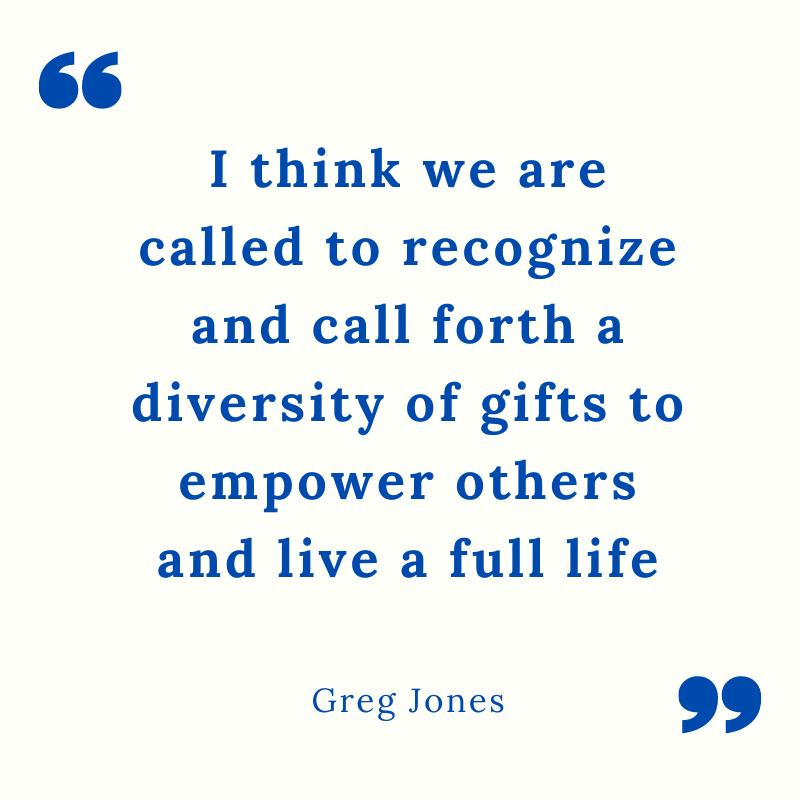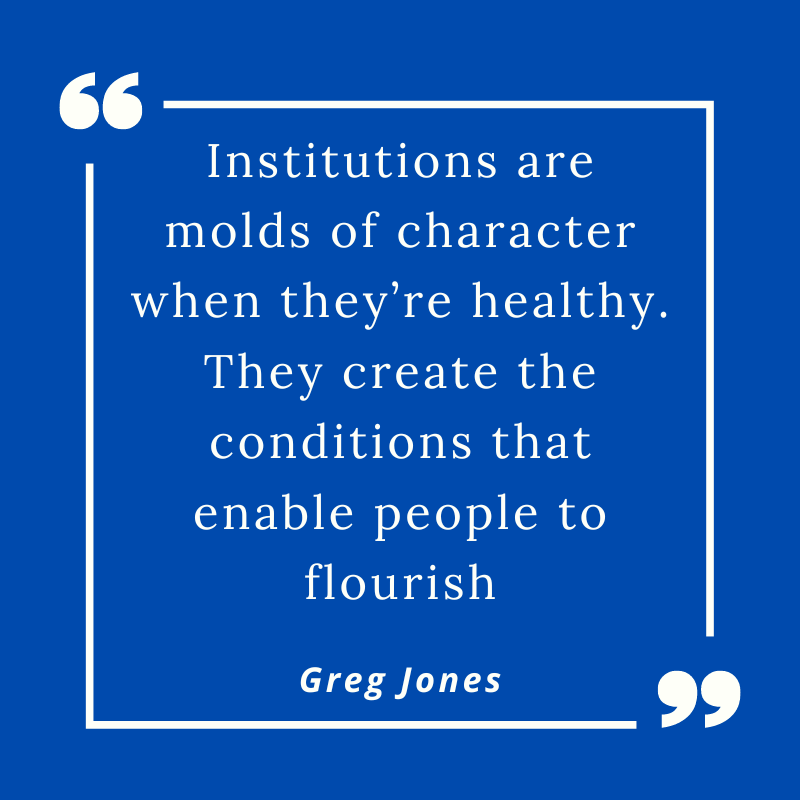How We Persevere: Leading Through Relationships with Greg Jones
Everybody has a Superpower. Do you know what yours is? And how will the world be different if you know what yours are? And if we help one another discover theirs?
And dear readers, I am making today’s special issue (interview insights published each 3rd Wednesday), available for ALL subscribers.
Greg Jones, is the President of Belmont University and one of the best and most visionary leaders on this planet. He is the former Dean of Duke University’s Divinity School, as well as a global strategist and entrepreneur. He also has a reputation for being a wonderful friend—in business and life. I know this to be true; Greg is one of my dearest friends and greatest mentors who has helped me figure out my own gifts and superpowers.
This is the crux of leadership for Greg: good relationships. Especially in moments—or seasons—of discouragement and uncertainty, upbuilding relationships are what keep us focused and persevering. In our conversation, Greg offered three key insights on the role relationships play in his leadership.
Relationship to self
When Greg and I first started talking about the importance of relationships, he was quick to point out that the relationship we have with ourselves is critical. He said he has often worked with people who have the “middle school complex.” Anxious about your own identity, you start to compare yourself to others and always see yourself falling short.But Greg believes that we all have a particular strength to contribute. He articulated this belief through the words of St. Paul in 1 Corinthians, who uses a metaphor of the body to illustrate a diversity of gifts. Each part has its own purpose. Its purpose cannot be another’s purpose.
But how does one find one’s purpose? Greg recommends two courses of action. First, continually put yourself in new situations. New situations illuminate new gifts that we would never have known we possessed. Second, be courageous. Look at yourself with generosity.
Both of these ideas resonate with me. From a superpowers perspective, think of those new situations as opportunities for expression (and hence, discovering) superpowers that are latent til now. What if we look at embracing change and new situations with a sense of excitement instead of trepidation, because we might be able to discover something wonderful about ourselves?
Relationship to others
Just as we ought to be generous with ourselves and always be in a posture of curiosity about our own gifts, we ought to be generous and curious with others. “For most of us,” Greg says, “whatever we’re trying for the first time is going to come in fits and starts, so we need support and encouragement from those who call forth gifts from us.”
On the flip side, Greg says that we should be encouragers to others when we can see their gifts more clearly than they can. We have the ability to interpret others when they are foreign to themselves, trying something new for the first time. When someone isn’t sure about their ability to carry out a task, our confidence and certainty about their competence can be vital. This, Greg says, is how we persevere.
Relationship to institution
Greg argues that the relationship between the individual and the institution should be a reciprocal one. We need structures to help us flourish; flourishing people create stronger institutions. For Greg, this means we need to take institutions seriously and be concerned about their damaged reputations in the last decades.To rebuild the institution, Greg believes that we need to rebuild the institutional leader. Instead of trying to find the most brilliant or the most expert or the most important name to run an institution, Greg says institutional leaders are a particularly rare breed. They need to be coaches more than anything else—developers of talent who can cohere a group and have concern for the individual, rather than a leader preoccupied with a top-down hierarchical narrative.
Thank you for reading this issue of Leadership Playbook: Unleashing Your Superpowers! A reason for me in writing this this newsletter is to refine the ideas that I’m working on. But I need your help. To do that best, I’d love to know what question you may have on each issue, or how it applies to your situation. Please email questions to me at CoachSanyin@gmail.com and share your feedback with me. THANK YOU!
Know someone who might benefit from this newsletter? Please share this with them.









